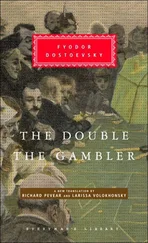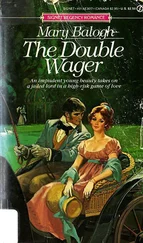“I didn’t know he was. You know considerably more about his life in Vermont than I do.”
“He took pictures there. In Underhill. I’ve seen them. Does your client believe those are hers, too?”
“What are they of?”
“A bicyclist.”
“You?”
When she had been nearing the wine bar, she had considered the different mistakes she might make. This thread, however, wasn’t one she had contemplated. But, then, she wasn’t even sure this was a mistake. Hadn’t she come here after all to learn what she could? She sighed, and in the abrupt silence at their table she heard for the first time the music and the conversations and the clatter of the glasses all around them. Almost suddenly, the bar seemed to have filled up.
“Me,” she answered finally, and then added quickly, “at least it might be.”
“You’re not positive.”
“Not completely. But it’s likely.”
“My client is a collector. There is no reason not to believe that among the photos that disappeared was an image of a girl on a bike.”
“This would have been taken seven years ago. When does your client claim that her collection-”
“A part of her collection.”
“When does she believe that a part of her collection disappeared? It would have to have been since then.”
“Your point?”
“Did Pamela inform the police of the theft? If the collection was that valuable-”
“Value needn’t be judged solely in monetary terms. What she cares about most are the images of her home. Her family. A picture of her and her brother means considerably more to her than it would to, say, the George Eastman House. If you want this picture of you so badly, I am sure my client would be happy to let you have it.”
“I don’t want the picture,” she said, aware that she was starting to grow dizzy, that the table was starting to inch up toward her, “I want…”
“Yes?”
“I want to know why he was there.”
“Assuming he was.”
“I want to know why he was on that road the same day those two men were.” The words, she knew, had come out as a mumble, a small sad plea smothered by falling snow. She felt like she was being smothered by falling snow-she was starting to feel cold and clammy now, though inside her head she could hear her heart beating like an African drum.
“The men who hurt you?”
“Yes! What other men could I possibly mean?”
“But you don’t know for sure it was the same day. Do you?”
“No. Not for sure.”
“All right, then. Were your attackers homeless? Forgive me, Laurel, I just can’t remember.”
“Why would you ask that? Why is that relevant?”
“You sound defensive. You sound like you believe the homeless never get violent. And yet just last spring two of your clients got into a knife fight in the alley adjacent to that pizza parlor on Main Street, and now one of them is dead and the other is in jail. According to the newspaper, the perpetrator-excuse me, alleged perpetrator-even threatened the victim over peanut butter and jelly sandwiches in your shelter.”
She bowed her forehead into the table. Of course she knew the story. But she also knew the two were exceptions: Everyone who had met them at BEDS had feared they were going to come to a bad end the moment they arrived. They spent a mere two nights at the shelter and then were gone. Laurel herself had never met either of the men, and so she had been more frustrated by the utter meaninglessness of their ends-death and prison-than she had been saddened.
“ Laurel?”
She flinched when she felt his hand move up her arm to her shoulder, and she forced herself to look up. “One of the men who attacked me was a drifter,” she said finally, her voice halting and slow. “But he had never set foot inside BEDS. I checked that years ago.”
“May I get you something? Have the waitress bring you water? Are you…”
She raised her eyebrows and waited. She recalled the van backing toward her, over her, her mouth and her lungs momentarily filling with exhaust. The weight of the tires on her toes. Her collarbone and a finger already broken. The bruises on her breast.
“Anemic? Diabetic?” asked Leckbruge.
“I just…I just felt weak for a second. I’m fine.”
“I’m not altogether sure you are. And I would like to help you.”
“I don’t want your help.”
“Look, when you were raped-”
“I wasn’t raped,” she said, and with the last of her strength she stood, using her arm to lift herself to her feet. His hand fell away and quickly he tried to retake hold of her shoulder, but whether it was to help her or restrain her she couldn’t tell. His eyes, once sympathetic, seemed to have grown cold.
“Please, Laurel, you don’t want to go home now.”
“You’re wrong. I do.”
“Stay. Sit. Please. I need you to stay for just another moment. I can’t…I can’t let you leave like this.”
She breathed deeply and held the air inside her for a long moment, and slowly the world began to return to focus. “This sounds all about you,” she murmured. “Why is it that you middle-aged men all think the world revolves around you?”
His lips curled reflexively into a boyish grin. “Au contrare. What torments the middle-aged man most is that he has discovered the world does not, in fact, revolve around him. That, alas, is what ails us.”
“I’ll keep that in mind.”
He glanced at his watch. “I would like to continue this discussion.”
“And you may: with the Burlington city lawyers. But not with me.”
“It need not be antagonistic.”
“It is if you bully me.”
“I don’t mean to bully you. Honestly, Laurel. I don’t. There are others who might. But I personally would not bully anyone-let alone someone who has endured all that you have. Trust me.”
Laurel thought about this. Was he insinuating that he knew people who might be willing to intimidate her? “Was I just threatened?” she asked, more nonplussed than fearful.
“I don’t think so,” said Leckbruge. “But, please, make me one promise. Will you?”
“Unlikely.”
“I’ll ask it anyway. If you change your mind and realize the reasonableness of my client’s request, will you call me?”
She gazed at him, and he raised his eyebrows above those gigantic yellow spectacles in a gesture that may actually have been sadness. Then he looked at his watch once more and sat back down on his stool. She realized as she left the bar that she had never even tasted her wine.
LAUREL FOUND the front door to her apartment was partway open when she returned, and initially she thought nothing of it. She presumed Talia was home. If she imagined anything precise, it may have been her beautiful friend reading on the couch, her iPod in her lap with its cords snaking up to her ears, her head and her shoulders bobbing slightly to the music. Instead, however, she understood as she pushed in the door that Talia wasn’t there and they had been robbed. She stood in the frame, momentarily stunned, her eyes taking an inventory of the room. The window to their small balcony was open and the chair beside it overturned. The porcelain table lamp by the couch-a delicately hand-painted, Chinese fixture that had sat for years in her parents’ living room before her mother had redecorated after her father had died-was smashed on the floor. The coffee table had been upended, the books and newspapers tossed to the ground like so much recyclable detritus. And Talia’s small mandarin writing desk had been shoved closer to the door to their kitchen, as if someone had pushed it aside while ransacking its single drawer. The computer was still upon it, apparently untouched, and she was relieved they hadn’t stolen that, too-though she still had no idea of what precisely had been taken.
Читать дальше












